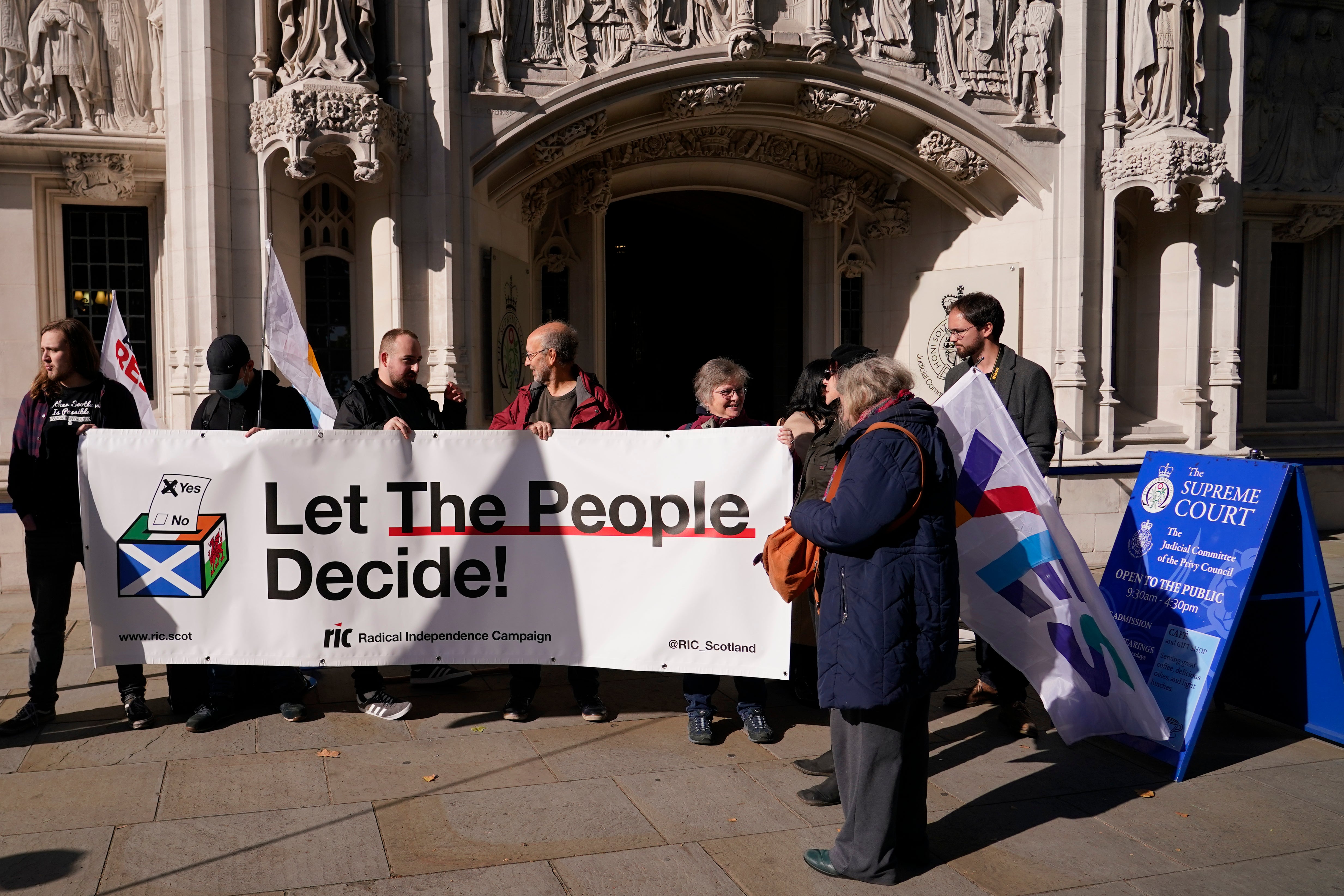UK Supreme Court hears case for Scottish independence vote
Judges at the U.K.’s highest court have begun hearing evidence on whether Scotland’s Parliament can legislate to hold a second referendum on Scottish independence

Your support helps us to tell the story
From reproductive rights to climate change to Big Tech, The Independent is on the ground when the story is developing. Whether it's investigating the financials of Elon Musk's pro-Trump PAC or producing our latest documentary, 'The A Word', which shines a light on the American women fighting for reproductive rights, we know how important it is to parse out the facts from the messaging.
At such a critical moment in US history, we need reporters on the ground. Your donation allows us to keep sending journalists to speak to both sides of the story.
The Independent is trusted by Americans across the entire political spectrum. And unlike many other quality news outlets, we choose not to lock Americans out of our reporting and analysis with paywalls. We believe quality journalism should be available to everyone, paid for by those who can afford it.
Your support makes all the difference.Judges at the U.K.'s highest court began hearing evidence Tuesday on whether Scotland's Parliament can legislate to hold a second referendum on Scottish independence.
Scottish First Minister Nicola Sturgeon has said she wants to hold a new independence vote in October 2023, despite opposition from the Conservative U.K. government in London. Sturgeon is asking the U.K. Supreme Court to rule on whether the Scottish parliament can organize a referendum without consent from the U.K.-wide government.
Dorothy Bain, the Scottish government’s top law officer, outlined her case to a panel of five judges Tuesday. She said the majority of Scottish lawmakers have been elected on commitments to hold a fresh independence referendum.
“The issue of Scottish independence is a live and significant one in Scottish electoral politics, and the Scottish government wish to introduce a bill in the Scottish Parliament to provide for the holding of a referendum,” Bain told the court.
She added that the referendum proposed by Scotland's government is “non self-executing,” meaning it is “advisory” and has no legal effect.
Two days have been set aside for the hearing at the Supreme Court in London. The U.K. government is expected to respond on Wednesday. The court's president said it will likely be months before it renders a judgment.
Scottish voters rejected independence by a margin of 55% to 45% in a 2014 referendum.
Sturgeon has said she wants to push on with her campaign to take Scotland out of the United Kingdom. She has argued that politics has changed in key ways since 2014 because of Britain’s departure from the European Union — which Scottish voters did not favor — and that her Scottish National Party has a clear democratic mandate to bring about a referendum.
Sturgeon, who leads the Scottish National Party, said if her government loses the court case, she will make the next U.K. national election a de facto plebiscite on ending Scotland’s three-century-old union with England. She did not give details of how that would work.
Like Wales and Northern Ireland, Scotland has its own devolved government and makes its own policies on issues including health and education. The U.K.-wide government in London controls fiscal policy, defense and other matters.